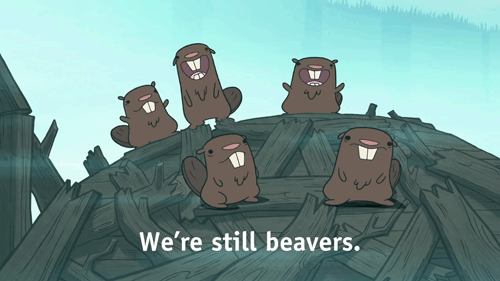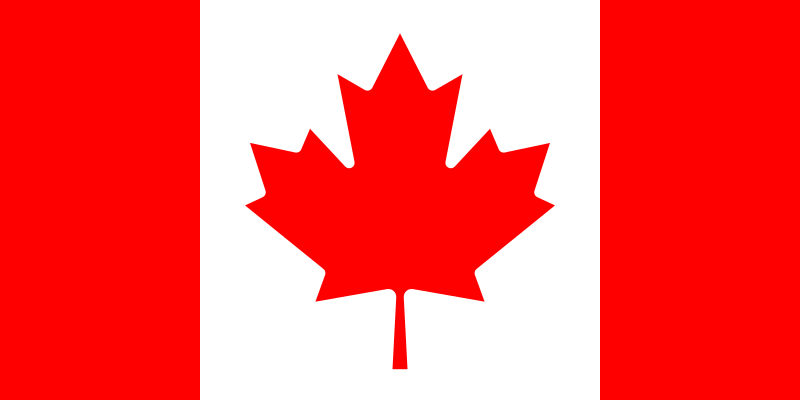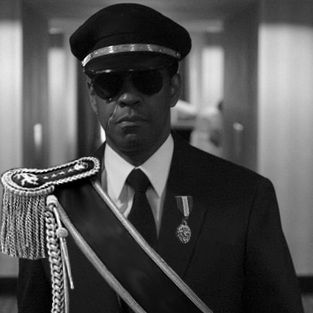Post by alex1guy on Apr 18, 2013 18:42:11 GMT -5
A Colder War 1960
[/SIZE][/B][/U]
Preface:
What a difference the death of one man can make in the tides of history. However, fate would have it on the 17th of March 1938, Adolf Hitler would suffer a sudden and violent stroke and sink into a coma from which he would never awake.The ramifications of this were to be immediate and far-flung as Nazi-Germany was suddenly paralyzed by the loss of their leader. What ensued had the potential to tear Germany apart as various factions, behind the closed doors of the Reichstag shuffled for power.
However, it would be Goring that would succeed Hitler and remove his rivals Hess, Himmler and Goebbels, taking sole leadership over the Third Reich. The death of Hitler the following year would seal Goring's position and the world was forever changed. Lacking the ambition of his predecessor, Goring was careful not to challenge the Allied powers in the West and the Soviet Union in the East. Goring would use more subtle methods to achieve his goals of hegemony in Europe, with espionage and under-the-table negotiations being his preferred style.
The State Of The World in 1960:
Europe:
Many believe that the death of Hitler was the only thing that brought Europe and indeed much of the world back from the brink of war. However, the next few years that would follow would be anything but peaceful as Goring continued Hitler's dreams of expansion through much more subtle means. A German sponsored Nationalist Revolt in The Netherlands would see a pro-German government installed in The Hague and Europe watched in horror as the Dutch Empire crumbled and joined the likes of Spain and Italy in the Fascist camp. After plundering the economies of it's "freely annexed" territories, Germany began program to realizing Hitler's bombastic dreams of a "Greater German Reich".
Britain and France however, had their own troubles to deal with, both their Empire's facing internal troubles of their own. In Africa and Asia, independence movements and civil wars had diverted much of the Imperial Power's attention and resources into keeping their domains together. France fights a growing war with Communist insurgents in Vietnam and Cambodia and Britain faces calls of reforms in Africa, Mussolini's "Roman Empire" was also facing similar struggles in Somalia and Libya, where anti-fascist movements were rife. In the East, the Soviet Union continues its ponderous growth rate, the Baltic States of Estonia, Latvia, and Lithuania falling under the thrall of Moscow in 1944. Poland stands uneasily between the two competing giants of Germany and The Soviet Union, her people tending to feel that they are better of brown rather than red.

The grand boulevard in Germania while only a quarter of the originally planned size, is one of the grandest complexes in Europe.
Europe:
Many believe that the death of Hitler was the only thing that brought Europe and indeed much of the world back from the brink of war. However, the next few years that would follow would be anything but peaceful as Goring continued Hitler's dreams of expansion through much more subtle means. A German sponsored Nationalist Revolt in The Netherlands would see a pro-German government installed in The Hague and Europe watched in horror as the Dutch Empire crumbled and joined the likes of Spain and Italy in the Fascist camp. After plundering the economies of it's "freely annexed" territories, Germany began program to realizing Hitler's bombastic dreams of a "Greater German Reich".
Britain and France however, had their own troubles to deal with, both their Empire's facing internal troubles of their own. In Africa and Asia, independence movements and civil wars had diverted much of the Imperial Power's attention and resources into keeping their domains together. France fights a growing war with Communist insurgents in Vietnam and Cambodia and Britain faces calls of reforms in Africa, Mussolini's "Roman Empire" was also facing similar struggles in Somalia and Libya, where anti-fascist movements were rife. In the East, the Soviet Union continues its ponderous growth rate, the Baltic States of Estonia, Latvia, and Lithuania falling under the thrall of Moscow in 1944. Poland stands uneasily between the two competing giants of Germany and The Soviet Union, her people tending to feel that they are better of brown rather than red.

The grand boulevard in Germania while only a quarter of the originally planned size, is one of the grandest complexes in Europe.
Eurasia:
The Soviet Union continues to dominate Eurasia, it's power stretching across two continents, from the Gates of Moscow to the Ports of Vladivostok. Khrushchev taking the mantle after Stalin's death in 1957. The Soviet Union still seeks to export communism across the world, sending support and striking alliances with those that it can. The Soviet Union is currently enjoying continued growth through blood, sweat and tears of the Soviet people and stands as one of the major world powers, it's influence being felt across the globe.
The Soviet Union continues to dominate Eurasia, it's power stretching across two continents, from the Gates of Moscow to the Ports of Vladivostok. Khrushchev taking the mantle after Stalin's death in 1957. The Soviet Union still seeks to export communism across the world, sending support and striking alliances with those that it can. The Soviet Union is currently enjoying continued growth through blood, sweat and tears of the Soviet people and stands as one of the major world powers, it's influence being felt across the globe.

The "Palace of the Soviets" was finally completed after Stalin's death, his body laying in state beside that of Lenin inside the monolithic capital buidling.
Asia:
The Japanese Empire despite having begun to drift away from Berlin as of late, benefited greatly from the collapse of the Dutch Empire, moving quickly to enforce "Order" in South East Asia, annexing the oil rich Dutch East Indies and avoiding what they thought was inevitable confrontation with the United States of America. Despite this, Japan had stretch itself to thin and in 1940, found itself being rapidly driven out of Manchuria and back into Korea by Chinese Communists sponsored by Moscow as well as the Chinese National Army. The truce between the two Chinese factions however would not last, and in 1943 Mao Zedong declared the creation of "The People's Republic Of China" and began driving into the Nationalist Heartland. While initially succeeding in driving the Nationalist armies back, The Republic of China rallied and after two more years of struggling, a ceasefire was declared and China split into two nations, "The People's Republic of China" dominating the industry rich North, and "The Republic of China", who occupies the remaining South.
The Japanese Empire despite having begun to drift away from Berlin as of late, benefited greatly from the collapse of the Dutch Empire, moving quickly to enforce "Order" in South East Asia, annexing the oil rich Dutch East Indies and avoiding what they thought was inevitable confrontation with the United States of America. Despite this, Japan had stretch itself to thin and in 1940, found itself being rapidly driven out of Manchuria and back into Korea by Chinese Communists sponsored by Moscow as well as the Chinese National Army. The truce between the two Chinese factions however would not last, and in 1943 Mao Zedong declared the creation of "The People's Republic Of China" and began driving into the Nationalist Heartland. While initially succeeding in driving the Nationalist armies back, The Republic of China rallied and after two more years of struggling, a ceasefire was declared and China split into two nations, "The People's Republic of China" dominating the industry rich North, and "The Republic of China", who occupies the remaining South.
India meanwhile still a part of of the Empire, sought greater autonomy from London and was granted Dominion status in 1954. With the population, resources and industry, India stands to become a leading power someday, a dream that many Indian nationalist groups wish to realize, but the threat of the Japanese Empire and the unstable nature of it's northern neighbor is cause for some concern.

Modern Tokyo is presented as a picture of efficiency and is largest city in the Empire.
Africa and the Middle East:
Numerous independence movements across Africa have caused enormous headaches for the European powers. Troubles in the Algeria and Somalia are of great concern for their respective colonial masters, who are being forced to divert more and more resources into fighting insurgents and growing independence movements. Belgium in 1954 would suddenly and violently lose control of her only colony, becoming the first of many to follow. Britain in 1947 would suffer a devastating blow to her national prestige when the Dominion of South Africa broke away to form an independent republic, sporting racist ideologies that would push them closer and closer to the Nazi sphere of influence.
In the Middle East, migration of Jews from Nazi Germany and the Soviet Union to the Middle East would see an ever increasing Zionist movement that, through bold and terrifying acts of terror and defiance, would see the creation of a new Jewish State in 1951. Loudly denounced by the Reich, The State of Jerusalem was little more than the city of Jerusalem itself and the surrounding territories in Palestine, but it would grow in size as more and more Jew settlers arrived seeking asylum from prejudice in Germany. Britain would find itself in tough position as it tried to appease both the Jewish and Arab communities who are in a state of continuous fighting, the latter who are looking towards Germany for support.
North America:
The United States of America, is fast tracking to becoming one of the most power nations in the world and is enjoying a golden age of prosperity. Distanced from the web of politics that binds Europe, The United States of America is enjoying a booming economy, an ever-expanding industry with it's middle class is swelling along with it's GDP and productivity. The United States currently prefers to keep itself out of European affairs, but is finding it more and more difficult to ignore the growing fascist and communist blocs which are engulfing parts of the world.
The Dominion Canada, like it's Southern Neighbor is enjoying a relative degree of success and prosperity, enjoying strong ties with Britain and the rest of the Empire. In recent years, Canada has also been growing closer to the US, signing mutual defense treaties and combining and sharing elements of their scientific and technology wings to ensure continued growth.
Central and Southern America:
South America, like it's Northern cousins, has enjoys distance from Europe but is not immune to the ideological struggles of the Old World. Communist movements in Cuba and Mexico continue to quietly gain strength and in South America, nations like Argentina and Peru teeter towards the likes of Nazi Germany. While mostly stable for now, with enough of a push in the right (or left) direction, the sweltering Latin states may very well become a hotbed for violence and revoltuion.
Australasia:
Dominated by the Dominions of Australia and to a lesser extend, New Zealand, the nations of Australasia are by and large loyal members of the British Empire. Enjoying free and open trade with the likes of Canada, the UK and India, the Nations of Australia and New Zealand sit comfortably as regional powers, although the encroachment of Japan against the Former Dutch Empire has been a cause for some alarm.
International Agreements and Alliances:
The League of Nations:
The League of Nations was an intergovernmental organization founded as a result of the Paris Peace Conference that ended the First World War. It was the first international organization whose principal mission was to maintain world peace. Its primary goals, as stated in its Covenant, included preventing wars through collective security and disarmament, and settling international disputes through negotiation and arbitration. Other issues in this and related treaties included labor conditions, just treatment of native inhabitants, human and drug trafficking, arms trade, global health, prisoners of war, and protection of minorities in Europe. It has however been of little consequence since it's inception, with few nations taking it seriously.
Alliances:
The Berlin Pact: Mutual defense treaty between Germany, Poland, and Italy.
The Allied Nations: Defensive alliance between the USA, the United Kingdom, Canada and France.
The Warsaw Pact: Mutual defense treaty between the Soviet Satellites.
The Commonwealth Accords: Military treaty between the United Kingdom, Ireland, Canada, Australia, New Zealand and India promoting cohesion and mutual defense.
The Treaty of Nanjing: Non-Aggression Pact signed between the People's Republic of China and the Republic of China (expires in 1970).
Trade and Economic Blocs:
Commonwealth Preference: No trade barriers between nations of the Commonwealth including (by not limited to) the United Kingdom, Ireland, Canada, Australia, New Zealand and dependencies.
The Asian Co-Prosperity Sphere Preferred trade between Indonesia, Korea, Taiwan and other dependencies with Japan.
The Economic Community: Preferred trade between Italy, Poland, Spain and other dependencies with Berlin.
Nations:
Nations:
The Soviet Union: zeldar155
The United States Of America: Barry
The Empire Of Japan: temporal 1
The United Kingdom: usili
The Third Reich: Alexcosta
The Polish Republic: hellhound01
The Third French Republic: snuggleton
The Republic Of China: ChineseDrone
The People's Republic Of China: foxspirit
The Republic Of Spain:
The Philippine Republic:
The Dominion Of India: heavyweaponsguy
The Dominion Of Canada: Deh74
The Dominion Of Australia: Tekomandor
The Argentine Republic:
The Kingdom Of Italy: rifleman509
Federative Republic of Brazil:
The Republic Of South Africa:
Federal People's Republic of Yugoslavia: alfredbnj
The Republic of Congo: sargenthawk
The United Mexican States: Vault boy
The Republic Of Turkey:
Iran: SuperMissile
Starting Nuclear Powers:
The United States (260 Weapons available)
The Soviet Union (40 Weapons available)
The Third Reich (45 Weapons available)
The United Kingdom (20 Weapons available)
Note the nations are listed in descending order to indicate the number of weapons they have available. Please note that nuclear weapons developed slower in this timeline without the war.
Developing Nuclear Powers:
The Republic Of China
The Dominion Of India
The French Empire
The Empire Of Japan
The Italian Empire
The Dominions of Australia and New Zealand
Rules:
1. What the mods say goes, unless you have a really, really good reason for appealing a mod decision just let it be, even if you lost the war or got your king's favorite dog killed or whatever. Appeals are a privilege, so don’t use them solely to complain about bad decisions backfiring on you.
2. I reserve the right to reassign the nations of players who for whatever reason demonstrate that they are not going to be a productive player.
3. Rookies hoping to learn the game are welcome, rookies who think they own the place and constantly refuse to be listen to more experienced players are not welcome.
4. I reserve the right to refuse service (or major nations) to any player who has a history of being unreliable, immature, or just plain difficult to deal with.
Being friendly, polite, and helpful is always appreciated, remember it's only a game and there's no reason not to be fun to be around..
5. Try and keep the swearing down in-game for diplomacy and communication, remember it’s just a game and it sort of breaks the flow of the game to have people cursing like Liverpool longshoremen.
6. Remember it's a game! Try to have fun! If I think a player is going to be rude or abusive, they will be kicked from the game.
7. Don't ragequit just because you lost a war or because you made a bad choice, it's immature and disrupts the game.
8. Nuclear weapons and WMD's will available but I reserve the right to veto a decision to use nuclear weapons if I believe you do not have a good enough reason to use them. Eg. "He shot down my plane I'm nuking New York!". Super weapons have a positive and negative effect, using them may help you in the short term, but public and international relations will take a serious hit.
9. Would also appreciate help from extra mods and such don't forget to apply!

Nation Name In Native Language- 1960
National Flag
Name: Nation Name in English
Head of State: Name
Head of Government: Name
Type of Government: Self-explanatory
Population:
Capital: Capital
Largest City: Largest City
Domestic
Internal Events:
-Any internal events to talk about...
Internal Problems:
-Normally, at least 3 Internal Problems exist almost all the time...
Economic Status:
-Great (Example)
Military
-All military information not dealing with the numbers themselves goes here...
Army:
Number of Men in total currently in the active military
-Number of men in location 1
-Number of men in location 2
-Number of men in location 3
Number of Militia
Navy:
Number of warships (man-of-war, frigates, etc.)
Alliances, Agreements, Pacts, and Trade:
Diplomacy:
#NationNameTurn










